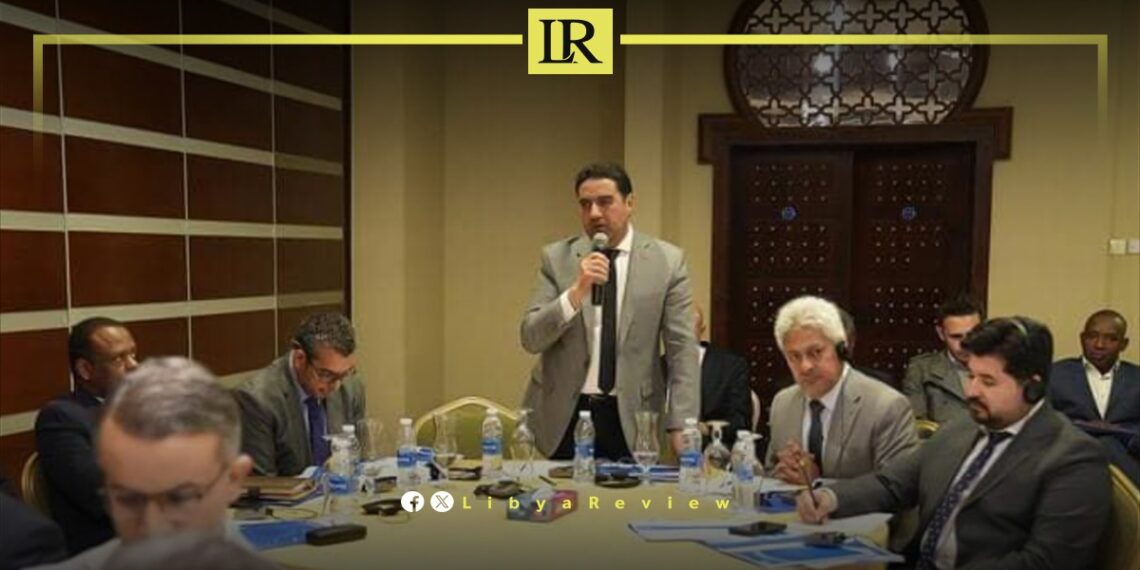On Thursday, the Libyan High National Elections Commission (HNEC) and the United Nations Development Programme (UNDP) convened at the Corinthia Hotel in Tripoli for the annual session of the 2023-2025 Program Council.
The meeting brought together Abd Al-Hakim Al-Shaab from the HNEC, alongside key representatives from the Prime Minister’s Office, and the Ministries of Planning, Finance, and Environment, in addition to various national partners.
This crucial council assembly falls under the umbrella of the UNDP’s 2023-2025 initiative, dedicated to tackling Libya’s developmental hurdles. The program is geared towards fostering sustainable development, consolidating peace, and enhancing democratic processes within the nation.
A focal point of the discussion was the HNEC’s engagement with the UNDP’s electoral support initiative, which spans a decade from 2013 to 2023. Al-Shaab highlighted the collaboration’s milestones, and the challenges faced. He laid out strategic recommendations aimed at ensuring the efficacy of Libya’s upcoming electoral milestones.
They also reviewed the strategic document for the 2023-2025 program, anchored around four pivotal areas: promoting peace and good governance, driving sustainable economic growth, fostering human and community development, and addressing climate change and water resource management.
This collaborative effort between Libya and the UNDP is pivotal in steering the country towards achieving its developmental objectives and national priorities. It has a strong emphasis on establishing a democratic governance framework, ensuring sustainable development, and laying the groundwork for lasting peace.
The much-anticipated presidential and parliamentary elections in Libya, initially planned for December 2021, have been indefinitely postponed. They have been postponed due to a lack of preparation and ongoing disagreements among various political forces about the legal framework for the election.
The international community sees holding elections in Libya as crucial for addressing the crisis of legitimacy and rebuilding trust in the political system.
Conducting a free and fair electoral process will effectively resolve this issue. However, the upcoming poll at this stage is facing several challenges. One of the main issues is the lack of agreement on the constitution.
Libya has been in chaos since a NATO-backed uprising toppled longtime leader Moammar Gaddafi in 2011. The county has for years been split between rival administrations.


